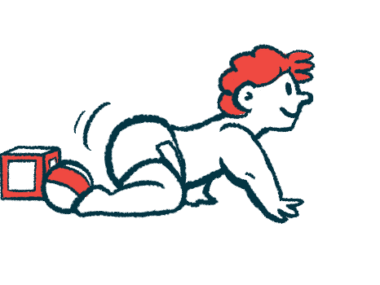A Lesson Learned About On-the-Job Medical Training
Written by |

Every doctor, nurse, and respiratory therapist has to start off somewhere. They don’t just jump right into their position. People trained in these occupations must complete years of medical school, and undergo extensive training at a medical facility.
Over the years, my son, Cayden, 3, has encountered numerous doctors, nurses, and respiratory therapists, either during scheduled appointments or during inpatient stays in the hospital. There have been way too many to count.
And at all of the medical facilities we have been to, we have encountered medical students training for their careers. Some of those encounters have been better than others, but it’s all been part of the learning process.
One of my favorite memories with a resident happened when Cayden was about 18 months old and had been hospitalized because he was sick with a virus. While he was looking at Cayden’s breathing, the resident seemed very puzzled about why he was still having respiratory retractions, even though the bilevel positive airway pressure (BiPAP) machine was showing strong vital signs.
I had to explain to him that Cayden has a weak diaphragm due to his Pompe disease. In a healthy individual, the diaphragm contracts during inhalation, pulling air into the lungs. It then relaxes as you exhale, pushing air out of the lungs. However, Cayden’s does the opposite. Because of this, it looks a bit odd when he breathes, even when he is 100% comfortable.
The resident was unaware that Pompe disease could have such an impact on the diaphragm. He was amazed that I had so much knowledge on Pompe disease and thanked me for sharing the information with him. He seemed very interested and continued to ask me questions about the disease. It felt great to share my knowledge with a doctor who actually seemed eager to hear more!
I wish all of my experiences with students in the medical field could be positive, however something happened once when Cayden was scheduled to receive a breathing treatment during one of his hospitalizations that has left me feeling uneasy ever since.
In this instance, I agreed to allow the medical student who was tagging along with Cayden’s respiratory therapist to administer the treatment. Everything was going well until the student began to use the intrapulmonary percussive ventilator (IPV), which sends bursts of air into a patient’s lungs to encourage deeper breathing.
The student had forgotten to remove a cap on the tubing of the machine, so when the mask was placed on Cayden’s face he wasn’t getting any airflow. After about 15 to 20 seconds, his oxygen saturation levels started to drop very low and his heart rate began to slow down. I watched as his skin turned gray, and then blue. The mask was removed and Cayden was given oxygen, and things immediately settled down for him like nothing had happened. However, it was scary to see my child pass out right in front of me.
They inspected the IPV to see what had happened and discovered the cap that hadn’t been removed. After a few long talks with the hospital staff, I was assured that this would never happen again. Nevertheless, I requested that no students work on Cayden for the remainder of his stay. I’ve let students work on Cayden again since that incident, but I now watch very carefully and analyze every single thing they do. I know accidents happen, but I never want to go through that again.
It’s not easy trusting someone to train for their job with your own child, but they have to start somewhere. My best advice for anybody in a similar situation would be to be patient and understanding. Every experience may not be the best, but that’s OK. The medical staff may leave a big impression on us, but we may leave an even bigger impression on them as they’re training for something they’ve worked so hard for. A little kindness goes a long way.
***
Note: Pompe Disease News is strictly a news and information website about the disease. It does not provide medical advice, diagnosis, or treatment. This content is not intended to be a substitute for professional medical advice, diagnosis, or treatment. Always seek the advice of your physician or other qualified health provider with any questions you may have regarding a medical condition. Never disregard professional medical advice or delay in seeking it because of something you have read on this website. The opinions expressed in this column are not those of Pompe Disease News, or its parent company, Bionews, and are intended to spark discussion about issues pertaining to Pompe disease.




Terry L. Matter
Excellent article. Very insightful and well written with intellect and compassion. Well Done.